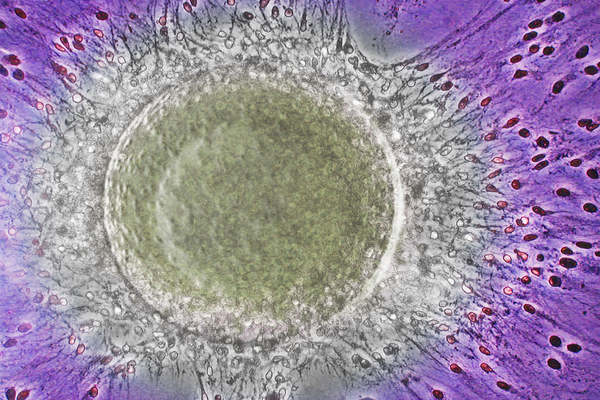February 14, 2024
4 min read
Recent research found a species of bacteria living in semen that’s associated with infertility and has links to the vaginal microbiome
Human sperm cells fertilizing egg ovum.
Semen was once assumed to be naturally microbe-free; any bacteria found in the fluid was assumed to be a sign of infection. But research over the past decade has shown that semen has its own microbial community, just like microbiomes of the gut and vagina. And now scientists have completed one of the biggest investigations to date on the semen microbiome’s potential link to infertility. Their new findings, published in Scientific Reports, single out a bacterial species that can also be associated with health and fertility issues in the vaginal microbiome.
The semen microbiome can contain a mélange of microbes. Most come from glands in the upper reproductive tract—including the testes, seminal vesicles and prostate—which contribute various components to semen. “Drifter” bacteria from urine and the urethra can also get swept up in the fluid during ejaculation, and microbes from a person’s blood or from their sexual partners might also take up residence in semen.
But how any of these individual species of bacteria might affect health has largely been a mystery. “I would assume that there are bacteria that are net beneficial, that maybe secrete certain kinds of cytokines or chemicals that improve the fertility milieu for a person—and then there are likely many that have negative effects,” says the new study’s co-author Sriram Eleswarapu, a urologist at the University of California, Los Angeles.
On supporting science journalism
If you’re enjoying this article, consider supporting our award-winning journalism by subscribing. By purchasing a subscription you are helping to ensure the future of impactful stories about the discoveries and ideas shaping our world today.
Eleswarapu likens the new research to a “fishing expedition” for…
Read the full article here







